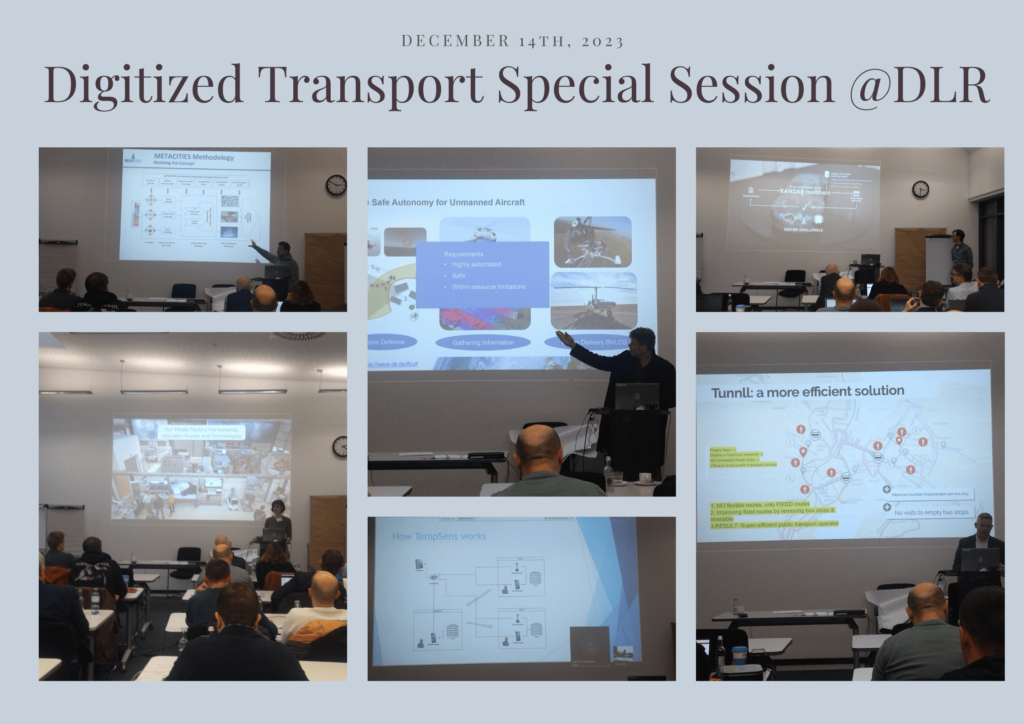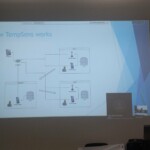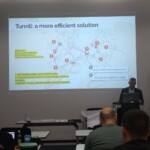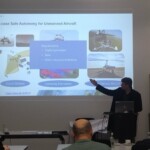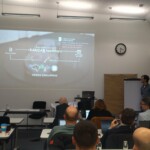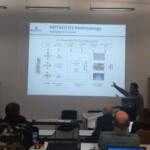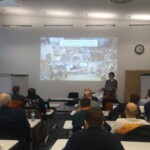Targeting at vertical-oriented networking with other projects and at showcasing beneficiaries’ achievements, SMART4ALL held a Digitized Transport Special Session, on December 14th, 2023, at the premises of DLR, the German Aerospace Center . The session was collocated with the last General Assembly of the project partners.
During a three-hour session, seven presentations related to Digitized Transport topics were made, both physically and online, by seven speakers. The session opened with a keynote speech by Mrs. Katharina Quecke-Metzner, representing pro_digital EDIH. Her speech under the title “Strengthening Innovation in Brandenburg: Best Practices for Building and Expanding EDIH’s Services for Industry” included a brief presentation of EDIH pro_digital, special references to examples and best practices with emphasis to the sector of “Transport, Mobility and Logistics” and an outline of the economic challenges and strategy implemented in Brandenburg, where SMEs are the backbone of economic structure.
On the first session, the floor was given to representatives of other EU funded projects and excellence hubs. More precisely, Dr. Christos Antonopoulos, Associate Professor at the University of Peloponnese and Deputy Head of the Embedded Systems Design & Applications Laboratory, presented Metacities Excellence Hub and how Digital Twins can monitor and improve city transportation, while Mr. Vincent Janson, research associate at DLR, gave an overview of XANDAR project that focuses on safety and security for embedded software systems on automotive and aviation use cases.
The second session was devoted to showcasing four digitized transport success stories from experiments (one internal, three external) funded by SMART4ALL project. On behalf of DLR, research scientist Mr. Wanja Zaeske, presented RV4SAH (“Runtime Verification for Safe Autonomy in Hypervisors”) project, executed in collaboration with fentISS with the aim to build a system in which a monitoring partition is capable of inspecting and semantically interpreting a subset of the information transmitted via inter-partition communication in a hypervisor, which is one of the building blocks of modern avionics.
Three funded projects under KTE and FTTE open calls were also presented – namely TUNNLL project which was funded under 2nd KTE and 3rd FTTE open calls, DELTA 3rd KTE project and TempSens 2nd FTTE, all related with Digitized Transport.
TUNNLL is a digitized transport operator for those small towns that don’t have local public transport, that means 1000+ towns in Europe. It was impressive to hear TUNNLL CEO, Mr. Kirill Blazhko, mentioning that this project has gained awards has been listed on the finalists in major competitions and challenges for smart mobility.
MoDrone CEO and co-founder, Mrs. Biljana Stamatovic, representing DELTA project gave an overview of the AI-based algorithm developed by her SME and Obuda University for optimized 3D drone flight path planning.
The representative of TempSens experiment, Mr. Agorakis Bompotas, collaborating researcher at the Industrial Systems Institute, presented the solution that TempSens offers for the minimization of the energy consumptionof the temperature monitoring sensors and the increase of cold chain monitoring efficiency during transportation of fresh and healthy quality animal husbandry products by integrating RFID technology. It is worth noting that fruitful discussions and suggestions for business development followed each presentation, while considerable networking opportunities among participants emerged.

